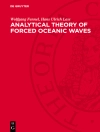The ongoing population growth is resulting in rapid urbanization, new infrastructure development and increasing demand for the Earth’s natural resources (e.g., water, oil/gas, minerals). This, together with the current climate change and increasing impact of natural hazards, imply that the engineering geology profession is called upon to respond to new challenges. It is recognized that these challenges are particularly relevant in the developing and newly industrialized regions. The idea beyond this volume is to highlight the role of engineering geology and geological engineering in fostering sustainable use of the Earth’s resources, smart urbanization and infrastructure protection from geohazards. We selected 19 contributions from across the globe (16 countries, five continents), which cover a wide spectrum of applied interdisciplinary and multidisciplinary research, from geology to engineering. By illustrating a series of practical case studies, the volume offers a rather unique opportunity to share the experiences of engineering geologists and geological engineers who tackle complex problems working in different environmental and social settings. The specific topics addressed by the authors of chapters included in the volume are the following: pre-design site investigations; physical and mechanical properties of engineering soils; novel, affordable sensing technologies for long-term geotechnical monitoring of engineering structures; slope stability assessments and monitoring in active open-cast mines; control of environmental impacts and hazards posed by abandoned coal mines; assessment of and protection from geohazards (landslides, ground fracturing, coastal erosion); applications of geophysical surveying to investigate active faults and ground instability; numerical modeling of seabed deformations related to active faulting; deep geological repositories and waste disposal; aquifer assessment based on the integrated hydrogeological and geophysical investigation; use of remote sensing and GIS tools for the detection of environmental hazards and mapping of surface geology. This volume is part of the proceedings of the 1st Geo MEast International Congress and Exhibition on Sustainable Civil Infrastructures, Egypt 2017.
Содержание
1 Site investigation using engineering geology mapping and geological hazard evaluation: Case study of the New Hail Economic City, Hail Region, KSA.- 2 Pre-design Site Investigation for an Oil and Gas Facility in the Marginal lands of the Nigerian Niger Delta Sub-region.- 3 Geotechnical Properties of Expansive Clay Shale in El-Mahrowsa, Qena, Egypt.- 4 Contribution of Zeolite to Deterioration of Pelitic Rocks from Asu-River Group and variation of the Deterioration with Water Sorption.- 5 Detection of elastic region varied by inherent anisotropy of reconstituted Toyoura sand.
Об авторе
Dr. Janusz Wasowski
He is a research geologist at CNR-IRPI (National Research Council — Institute for Geo-hydrological Protection) in Bari, Italy. He is also the Editor-in-Chief of Engineering Geology. Since 2011 he has held the positions of Visiting Professor at the Research School of Arid Environment and Climate Change, Lanzhou University, Gansu, China and of Science Officer of the Natural Hazards Group Programme, European Geosciences Union (EGU). He is an internationally recognized scientist in the field of engineering geology, natural hazards and applied remote sensing. For over 25 years Dr. Wasowski’s work has covered a broad spectrum of research topics ranging from slope instability and landslide assessment, collateral seismic hazards, geotechnical field investigation and in situ monitoring, to exploitation of air/space-borne remote sensing and geophysical surveying in engineering geology. He has also served as a consultant for the National Department for Civil Protection, Italy, the Government of Gansu Province, China, and the Centre National de l’Information Géo-Spatiale, Haiti, focusing on landslides and other geohazards and on the application of satellite multi-temporal interferometry for monitoring terrain deformations and infrastructure instability.
Since 2007 Dr. Wasowski has been a member of the Editorial Board of Engineering Geology (Elsevier) and the Quarterly Journal of Engineering Geology and Hydrogeology (The Geological Society, London). He is the author/co-author of over 100 articles/book chapters and the guest editor of 11 special issues published in international scientific journals.
Dr. Daniele Giordan
Researcher of CNR IRPI since 2009. Scientific coordinator for geological analysis geo-hydrological processes and monitoring data results interpretation of Geohazard Monitoring Group. Research interests mainly focused on the development of new methodologies and systems for landslides monitoring and in particular on: i) the development of a communication strategy for landslide monitoring results dissemination; ii) the use of the inverse velocity failure forecast approach for early warning applications; iii) the use of Li DAR and UAV for natural hazards effects mapping and monitoring; iv) Alpine Deep Seated Gravitational Slope Deformations: dynamic and interactions with human activities. Secretary of the Italian National Group of the International Association of Engineering Geology (IAEG). Chairman of the IAEG International Commission C35 “monitoring methods and approaches in engineering geology applications”. Editor of several books and special issues focused on engineering geology topics and co-author of more than 40 papers and book chapters.
Dr. Piernicola Lollino
He is a research engineer at CNR-IRPI (National Research Council — Institute for Geo-hydrological Protection) in Bari, Italy.
For about 15 years Dr. Lollino’s work has covered a broad spectrum of research topics ranging from stress-strain behaviour of slopes, analysis of the failure mechanisms and slope stability assessment, earthflow propagation, underground caves, old embankment dams and infrastructure embankments, based on numerical modelling and field monitoring. He has been visiting Ph D student at the Imperial College and visiting scientist at the USGS (Golden, USA) and Universidad Politecnica de Madrid (Spain). He has also served as a consultant for the National Department for Civil Protection, Italy, focusing on emergency events related to landslides.
Since 2007 Dr. Lollino has been a reviewer for several international scientific journals, as Engineering Geology, Computers & Geotechnics, Computers & Geosciences, Quarterly Journal of Engineering Geology and Hydrogeology, Natural Hazards & Earth System Sciences. He is the author/co-author of over 70 articles.












